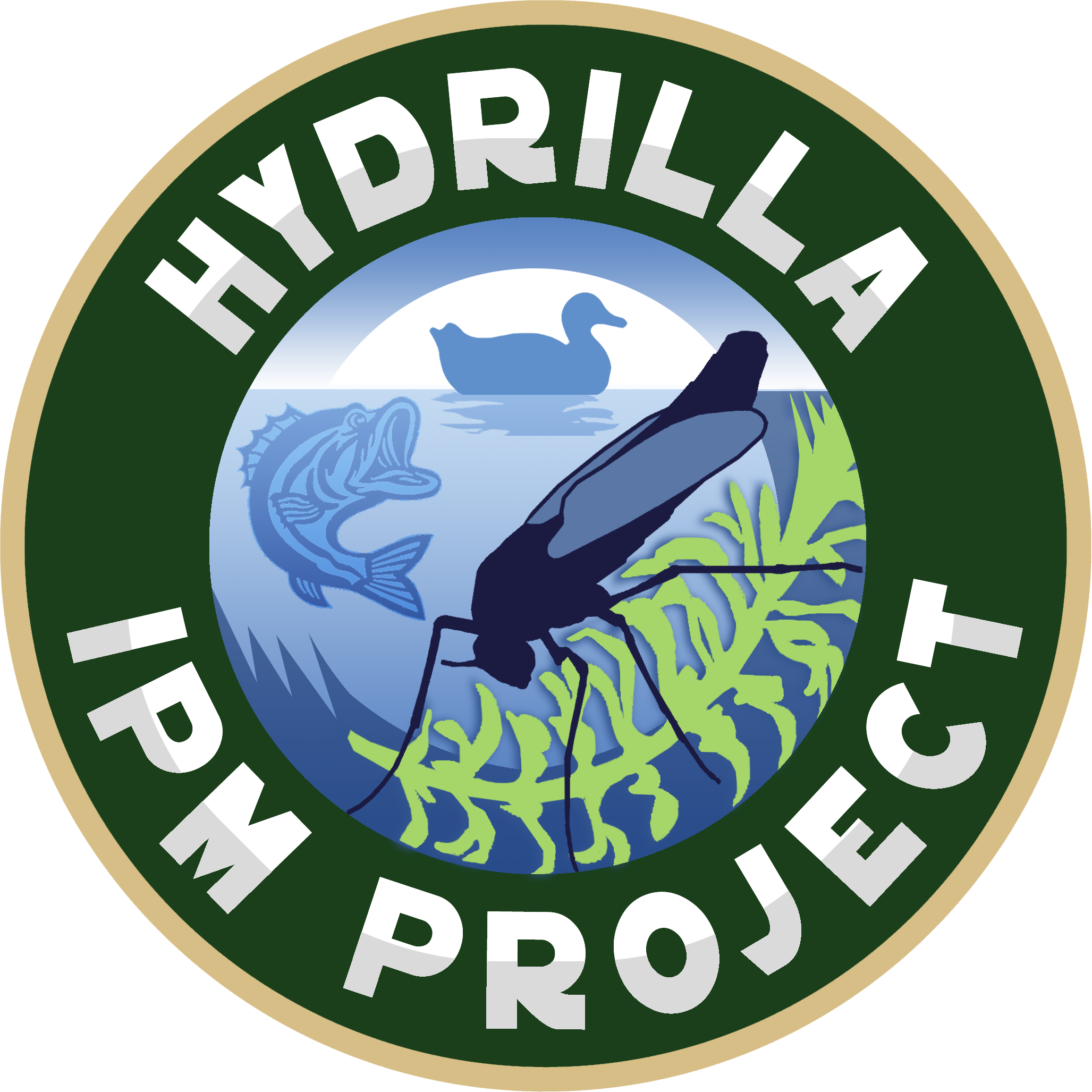About Hydrilla IPM CPPM
2014-2017
Grant funding for this project provided by: USDA-NIFA-CPPM Crop Protection and Pest Management Competitive Grants Program, Applied Research and Development Program Area. Title: A sustainable IPM strategy for the invasive aquatic weed hydrilla. 2014-70006-22517.
UF/IFAS research and extension faculty are collaborating with Florida LAKEWATCH and the National Center for Agricultural Utilization Research to demonstrate the effectiveness of a novel IPM strategy and facilitate its use through education of stakeholders.
We are building upon the knowledge gained in the Hydrilla IPM RAMP project by completing field assessments of the proposed IPM tools. We expect our research project to show that low risk tactics including two biological control agents and an herbicide are compatible, and that by integrating them, we can achieve safe and cost-effective control of hydrilla. We also believe that by engaging and educating stakeholders with our Extension program we can improve understanding of IPM and promote its implementation.
About Hydrilla IPM RAMP
2010-2015
Grant funding for this provided by: USDA-NIFA-RAMP Risk, Risk Avoidance and Mitigation Competitive Grants Program. Title: Sustainable Approach for Integrated Management of Herbicide Resistant Hydrilla in the U.S. 2010-51100-21653.
UF / IFAS research and extension faculty, FAMU faculty and an ARMY Corps Engineer are tackling the issue of fluridone-resistant hydrilla. The central hypothesis of this project involves integrating herbivory by a naturalized meristem miner Cricotopus lebetis Sublette (Diptera: Chironomidae) with the native fungal pathogen Mycoleptodiscus terrestris and low doses of a new acetolactate synthase (ALS) inhibiting herbicide (imazamox) as a viable strategy for long-term sustainable management of hydrilla.


